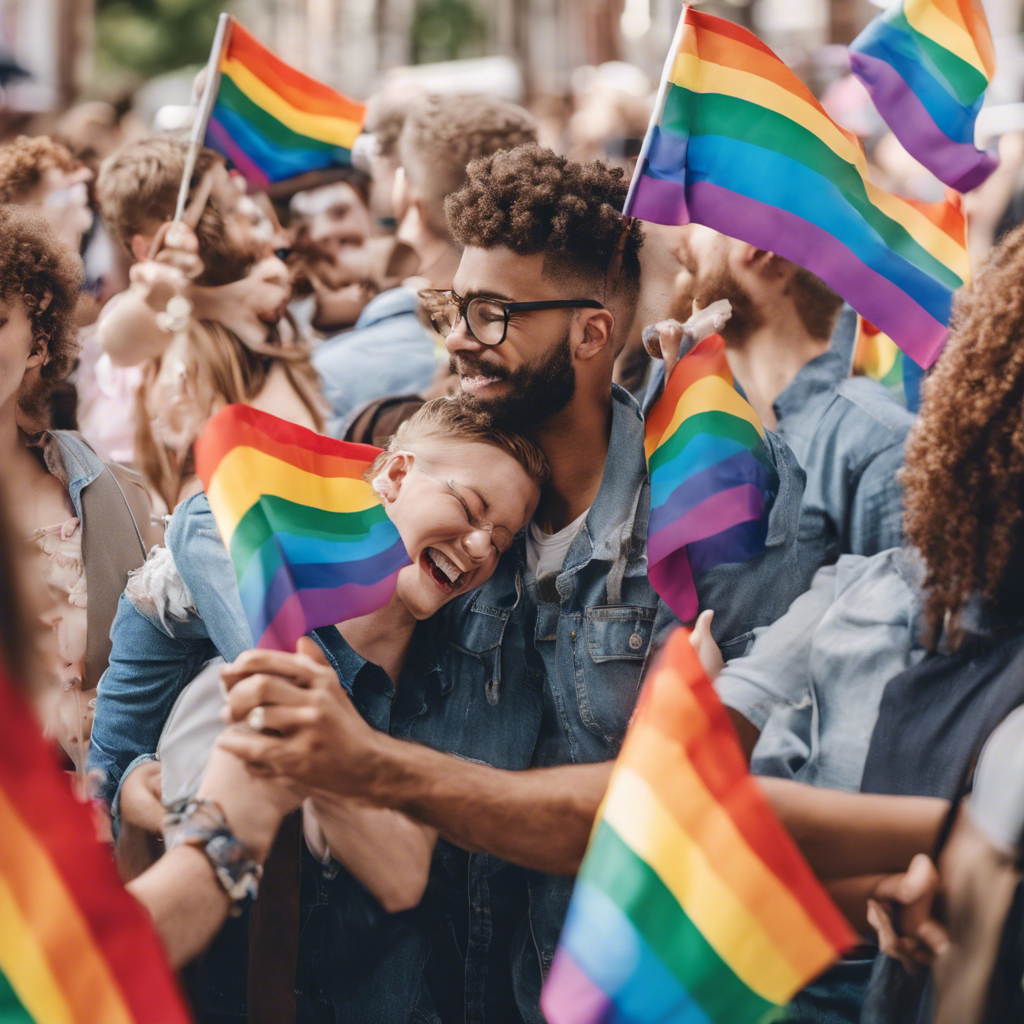New Data Reveals the South as Home to the Largest LGBTQ+ Population in the U.S.

A recent report from the Williams Institute at the University of California Los Angeles confirms that the South has the highest concentration of LGBTQ+ individuals in the United States.
New data estimates that the largest number of lesbian, gay, bisexual, and transgender adults in the United States reside in the South, reaffirming previous findings. The report, based on Centers for Disease Control and Prevention data, reveals that there are nearly 14 million LGBTQ+ adults in the U.S., with some states showing higher percentages of LGBTQ+ residents than others. The South continues to have the highest percentage of LGBTQ+ individuals, with nearly 36% of the nation’s LGBTQ+ population residing in this region. This article will delve into the reasons behind this concentration, the challenges faced by LGBTQ+ individuals in the South, and the implications for LGBTQ+ rights and equality.
1: The Growing LGBTQ+ Population in the U.S.
The report from the Williams Institute estimates that over 13.9 million LGBTQ+ adults live in the U.S., representing 5.5% of the population. Gallup’s poll also indicates that 7.2% of U.S. adults identify as LGBTQ+, with the highest percentage found among Gen Zers. The increasing number of LGBTQ+ individuals coming out at a younger age contributes to the overall growth of the LGBTQ+ population.
2: The South as the Epicenter of LGBTQ+ Population
The new data reveals that nearly 36% of the LGBTQ+ population in the U.S. resides in the South, representing over 5 million people. This percentage has increased since the last data released in 2014, indicating a growing LGBTQ+ presence in the region. Researchers define the South as states ranging from Texas and Oklahoma to Florida and north through Delaware, including Kentucky, West Virginia, and Washington, D.C.
3: LGBTQ+ Rights and Challenges in the South
The South has become the battleground for LGBTQ+ rights and equality due to the high concentration of LGBTQ+ individuals and the passage of restrictive laws in Republican-led states. These laws often target transgender healthcare, access to school sports, and LGBTQ+ history education. Despite the challenges, LGBTQ+ advocates in the South remain resilient and committed to fighting for equality.
4: The Importance of LGBTQ+ Representation in the South
The National LGBTQ Task Force selected New Orleans as the location for its next annual conference, recognizing the need for increased representation and support for LGBTQ+ individuals in the South. Louisiana, with a LGBTQ+ population of 5.7%, ranks higher than states like New York, California, and Illinois. LGBTQ+ advocacy groups have also highlighted the lack of substantive media coverage of LGBTQ+ issues in the South, further emphasizing the need for increased visibility and representation.
5: Generation Z and the LGBTQ+ Identity
Generation Z, the youngest adult generation, has a significantly higher percentage of LGBTQ+ members compared to older generations. The report shows that 15.2% of Gen Z identifies as LGBTQ+, representing over 4.6 million people. This trend aligns with Gallup’s findings that 19.7% of Gen Z identifies as LGBTQ+. As more Gen Zers enter adulthood, the overall number of LGBTQ+ individuals is expected to continue rising.
6: The Prevalence of Bisexuality in the LGBTQ+ Community
Bisexual individuals make up the majority of the LGBTQ+ population in the U.S., accounting for over 58% of all adult LGBTQ+ individuals. This data highlights the importance of recognizing and addressing biphobia and supporting bisexual individuals within the LGBTQ+ community.
Conclusion: The latest data from the Williams Institute reinforces the notion that the South is home to the largest LGBTQ+ population in the United States. Despite facing challenges and discriminatory laws, LGBTQ+ individuals and advocates in the South remain resilient in their fight for equality. The increasing visibility and acceptance of LGBTQ+ individuals, particularly among younger generations, contribute to the overall growth of the LGBTQ+ population nationwide. It is crucial to continue supporting LGBTQ+ rights and representation in all regions of the country to ensure a more inclusive and equitable society for all.

